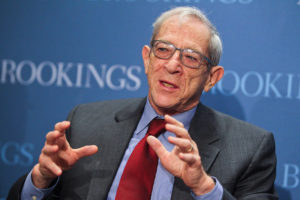
December 6, 2019: The first time Steve Cohen came into the lives of the Schaffer family was when he turned up in New Delhi as a grad student some time in the early/mid 1960s. Continue reading “In Memoriam, Stephen P. Cohen, 1936-2019”

December 6, 2019: The first time Steve Cohen came into the lives of the Schaffer family was when he turned up in New Delhi as a grad student some time in the early/mid 1960s. Continue reading “In Memoriam, Stephen P. Cohen, 1936-2019”
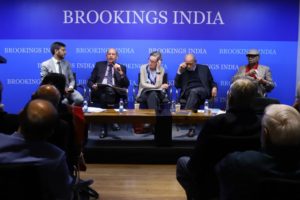
Brookings India hosted the first session in its series “Back to the Future” on March 5, 2019 in New Delhi. The panel discussion examined the events leading up to the entrance and exit of the Indian Peace Keeping Force into Sri Lanka in 1987-90. Participants included four Indians who had been in critical policy-making positions in their government during this period, and Ambassador Teresita Schaffer, who provided a view from the United States, both on her own behalf and reflecting the experience of her late husband, Amb. Howard Schaffer. The discussion illustrates some of the different priorities in different parts of the Indian government; the sharp change in perspective when Ranasinghe Premadasa succeeded J.R. Jayawardene as Sri Lankan president; and a U.S. government position that supported the IPKF but remained quite detached.
A summary of the proceedings is here; a video of the session is here. Schaffer’s portion of the discussion is from 1:09 to 1:30 on the timeline of the video.
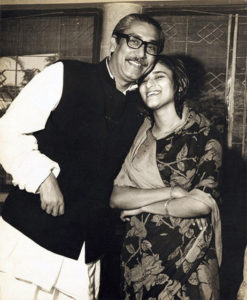
March 12, 2018: This article, the last that Howard and Teresita Schaffer wrote together, is adapted from a study commissioned by the Center for Strategic and International Studies (CSIS), Washington, D.C., to be published as part of a book called Independence Movements and their Aftermath: Self-Determination and the Struggle for Success. It is carried here by permission of CSIS. It summarizes Bangladesh’s two independence movements: the end of British rule in 1947, and liberation from Pakistan in 1971. It concludes that of the three biggest problems they confronted, Bangladesh’s early leaders succeeded beyond expectations in creating a unified and disciplined army and a dynamic economy, but the country is still struggling to craft a governing consensus.
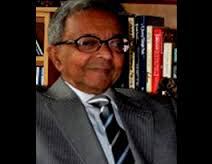
May 12, 2017: We were saddened to learn of the death earlier this week of Ambassador Ernest Corea. A journalist turned diplomat, Ernest served with great skill in the 1980s as Sri Lanka’s ambassador to the United States. The feat of his we most remember among many is his adroit management of the state visit of Sri Lankan President J. R. Jayewardene to this country in June 1984 during Ronald Reagan’s first term in the White House. Ernest was living in retirement with his wife Indra in suburban Virginia when he passed away in his mid-eighties.
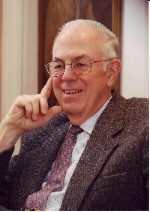
March 10, 2016: When Hal Saunders died last weekend, the world lost one of the most creative peace negotiators it has ever known. He is best remembered as the man who gave Jimmy Carter’s vision of an Israel-Egypt peace practical form at Camp David. Having worked for him both during and after his distinguished government career, we think it’s important to highlight two other characteristics that have been lost in most of the early remembrances. First, Hal was an extraordinary boss and colleague. Second, his government career – a couple of decades at the top of the official pyramid – was only the beginning of his contribution to both understanding and doing peacemaking.
Continue reading “Harold H. Saunders: Remembering a Peacemaker”